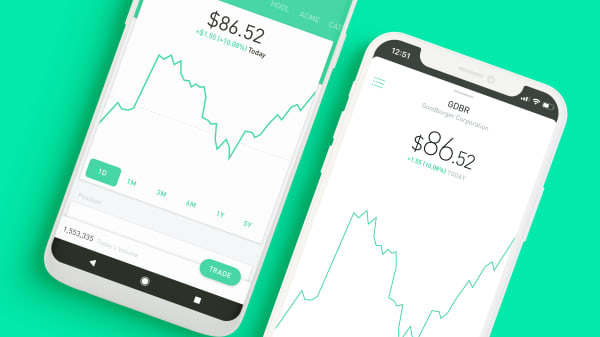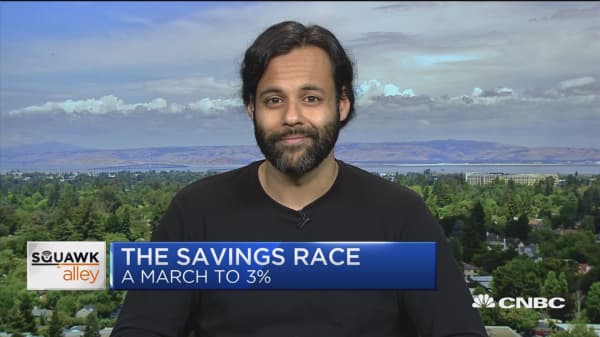The head of the nonprofit insurer that protects investors from losses in the event a brokerage fails said Friday he was as surprised as anyone to hear about Robinhood’s plans to offer checking and savings accounts for 3 percent interest.
SIPC President and CEO Stephen Harbeck told CNBC he has serious concerns about the plan, and has contacted the Securities and Exchange Commission’s trading and markets division about it. The SEC could talk to Robinhood about it as early as Friday, he said. Robinhood had not yet contacted SIPC, he added.
The issue has “profound significance” for the financial services industry, Harbeck said.
Robinhood announced on Thursday it would offer no-fee checking and savings accounts alongside its brokerage accounts, with an enticing 3 percent annual interest rate. It was seen as a shot across the bow of traditional banks.
On Robinhood’s website, it explains that users need to sign up for a Robinhood account to get the checking and savings accounts. But it says users do not need to invest to use the accounts, something Harbeck says is contradictory.
Brokerage firms often offer accounts for customers to hold cash until it can be invested in securities, but those accounts aren’t meant to be strictly for savings, Harbeck said. Money sitting in such accounts but not intended to buy securities may not be covered by the SIPC, which insures accounts for up to $250,000 of cash in the case of a broker’s failure.
Harbeck’s tenure at the the Securities Investors Protection Corp., beginning as CEO in 2003, spans the liquidations of Lehman Brothers, Bernard L. Madoff Securities, and MF Global.
Cash balances sitting in accounts collecting interest for a long period of time also skirt the SIPC rules on what’s covered in the event of a collapse, Harbeck said. It may fall under the category of a loan because the brokerage can take that money and invest it income-generating investments like Treasury securities. A loan wouldn’t be covered by the fund. “We want to make sure that investors know there’s some risk there,” he told CNBC.
The SEC, which oversees SIPC, declined to comment.
Robinhood did not immediately respond to a call and email for comment.
Former Rep. Barney Frank, a key architect of the post-crisis financial reform that bears his name, raised flags about certain aspects of the new Robinhood products. He said SIPC insurance is overall, “less comprehensive” than FDIC insurance.
“If there’s any uncertainty about regulatory protection, there is serious potential for people to be misled,” Frank told CNBC.
Robinhood is built on the mission of democratizing finance and banking the “under-banked.” But the former congressman said that also means the company may be reaching a less financially savvy audience less familiar with the risk of a non-FDIC insured product.
Robinhood accounts are SIPC-insured up to $250,000 but the agency does not guarantee customers would get their money back in every situation. Assets can be backed by one of the agencies — either the FDIC or SIPC — but not both.
“You’re reaching the people who tend to be unbanked and they might be less sophisticated financially, and not the people who would fully understand it,” Frank said. “There needs to be certainty — if there’s stuff that isn’t covered it needs to be in big bold on the top of the page.”
[“source=ndtv”]






